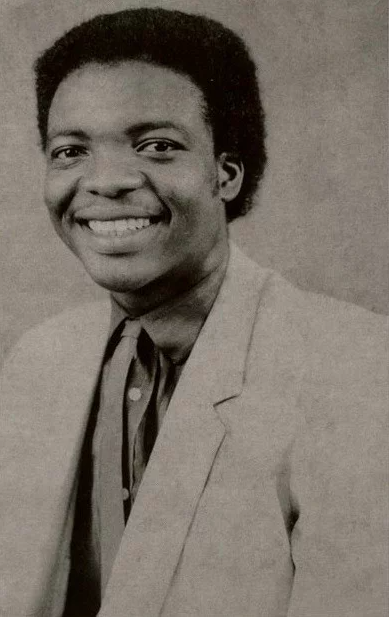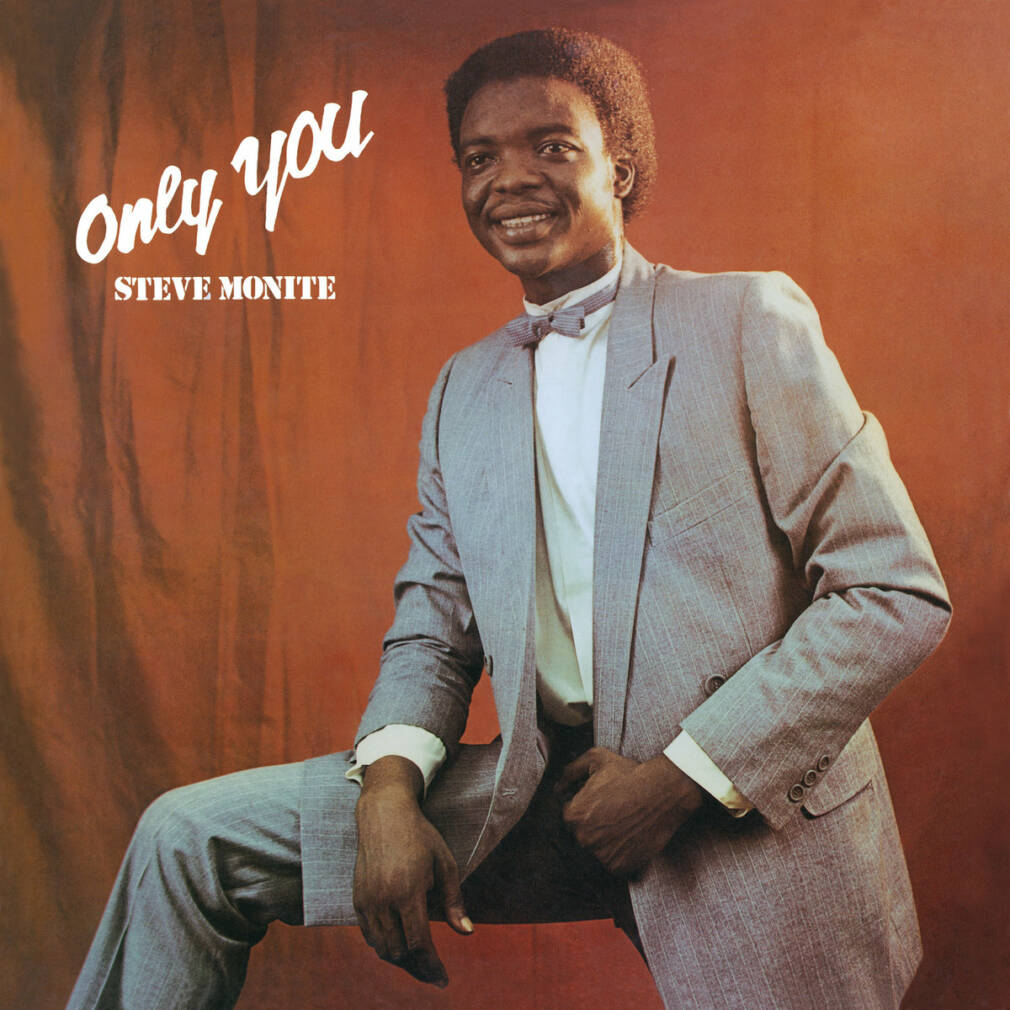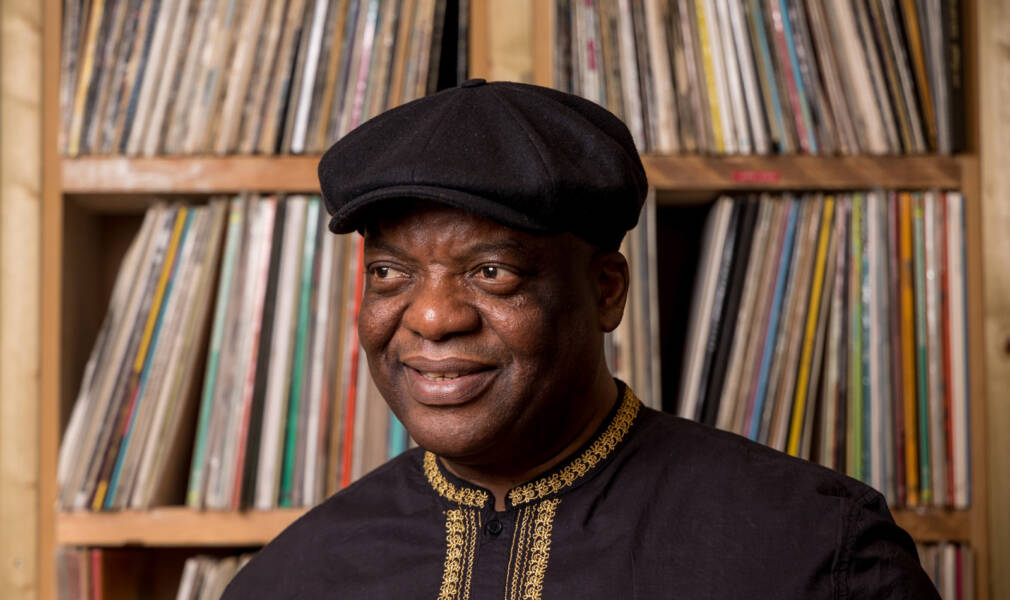It was a sunny Friday afternoon, in Lagos, and the atmosphere around town hung with a certain dryness. I had lazied all day, tucked between completing an article and a frantic search for new music. However, as soon as the veteran Nigerian disco singer, Steve Monite, hopped on a video chat with me, the energy that pulsated into my mind was exactly the same one could get if they played any of his records. I sat staring at his demeanour, with intrigue. With his newsboy cap, dark shades and effervescent smile, Monite’s aura soaked up the atmosphere, even from over 4,000 miles away.
Hailed as the King of Boogie, Monite (pronounced Mon-ah-tay) is one of the most charismatic 61-year-olds anyone can ever meet. Born and bred in the South Western climes of Edo State, Nigeria, Monite rose to fame as one of the Nigerian pioneers of electro-funk; a legacy that has only begun to bloom, over thirty years after it was first planted.
With his 1984 classic, “Only You,” the four-tracker soundpiece recently reissued by the British Label, Soundway Records, there is a lot to say about Monite, especially about his iconic post-career popularity boom. However, the crown of the gist remains that the King of Boogie is back on the microphones again. And, this time, he’s here to stay.
Once Upon A Legend
Nigeria’s popular music scene has gone through a litany of eras. However, the ‘80s was the stuff of legends. From the melodramatic Afrobeat of Fela Kuti, to the primordial Reggaeton of Ras Kimono, down to the uplifting Highlife of Osadebe, and the elegant Rhythm and Blues of Christy Essien Igbokwe, the Nigerian music scene was a cacophony of captivating genres. Yet, Steve Monite rose to the occasion as a radical, being among the first musicians to sojourn abroad in search of “different sounds.” The result? A commercially risky melange of RnB, Synth-y Funk and Disco, or better yet what is called ‘Boogie’ or ‘Electro-funk’. It was a risk that would change his life, his career, and the face of the Nigerian music community.
“I was the first guy to release an electro-funk record, because every other artist wouldn’t dare to,” he explained. “A lot of musicians then were experimenting with Calypso. So when I did electro-funk, we knew it was going to be a hit. But Micheal Jackson completely knocked my music off the shelf, then. He came out with Thriller, and the whole world was just ecstatic.”
“I was always in and out of Europe and electronic funk just started. They had just introduced synthesisers. We hit the studio and I began working with Nkono Teles who was a very great producer even if people have been denying him his accolades. As far as I am concerned, Nkono Teles is one of the greatest keyboard players in Africa who contributed immensely to the Nigerian music industry, especially when it comes to disco, modern music.”
“The night we did that recording of “Only You” at AMI records, Tony Okoroji (manager with EMI records) was getting married to his wife. So, we worked tirelessly that night to get lucky. And he was insisting, ‘Steve you’ve got to give us more fun music,’ because I had been fusing reggae and r&b. However, we ended up creating ‘Only You’, and that was it. I also recorded the other songs, ‘Welcome My Love’, ‘I Had A Dream’, and ‘Things Fall Apart’.”

The 80s was a golden era for Nigeria’s creative scenery. With a spike in cultural importation, a chunk of art (music, film, fashion, etc) was mirrored after American and European concepts. It was a friendly arena for free-spirited creatives. And this was where Monite had hoped to thrive. His career did change, but not immediately. In fact, it didn’t change until he had quit it totally, over 33 years since he first released the record.
“You see, in those days, in the Nigerian music industry, they didn’t know how to promote music well. If you are not popular, forget it; you stand a very slim chance. Record companies just felt it was enough to drop an album and expect the money to come from heaven. The music was in the market, but I didn’t make money from it. EMI Records didn’t even give me an account of what they made. I just know that I dropped an album and got no response.”
With no digital streaming platforms, gaming consoles, cable television, or other conventional marketing channels, Monite blames his initial nosedive on the apathy of the industry gatekeepers at that time.
“We had no international link to promote our music then. The Western world knew how to push their artists better, then. It was really a tough period for us who pioneered it. I was very young and I expected those who were popular in the industry to give me a helping hand. When American groups like Shalamar and Kool and the Gang came to perform, I was thinking they (show promoters) were going to call me and say, okay come and perform one or two songs just for publicity sake, you understand? But it never happened. I went to all the radio stations, personally, to do talk shows. I went to nearly all the newspapers and even the Nigerian Television Authority (NTA), in Lagos. I was only able to secure a variety show, which I performed at. Till today, NTA has not even responded to my requests for that footage from their archive. But look at me now, all the publicity I was looking for over the years are now on my doorstep now. What a life!” he heaved a heavy sigh, before resuming his charming smile.
A New Phase
“Holy fuck. What record is this from? Who is this?” Phill Celeste groaned, in a conversation with the Recording Academy. Like many others today, the Baltimore-based musician and Record Producer is among the new generation of listeners who are deeply awed by Monite’s 1984 classic, so much that they have created their own covers of it. With the renaissance of electronic funk sweeping across the global music industry, now commonly branded as ‘Alternative Music’, Monite’s “Only You” has become a reference point and a source of inspiration for a lot of young musicians and music lovers today.
From the distorting vocals of Tyler the Creator’s Earfquake, to Chromeo’s energetic Night By Night, down to the hypnotising buzz from Daft Punk’s Random Access Memories, electronic funk has begun to wash over the creative scene once again. It’s a comfortable distraction grooving on the sideline away from the fleeting euphoria of contemporary pop music. Even within Monite’s hometown, another rising Edo-born legend, Rema, also recently experimented with the music style, in his song Addicted. This new phase also brings its blessings for Monite. In 2017, he was shocked to see his name spluttered across the internet, and this was even before the popular American superstar, Frank Ocean, covered his song, Only You, at the 2017 Fuck Yeah Fest (FYF), in Los Angeles.
“Oh boy, it was like a moon struck,” his eyes lit up like an excited child. “I was completely out of show business over the years, due to the way that the Nigerian music industry was being run. I had moved on and I had raised my own family. All of a sudden I went to see my nephew and my brother at Redding, in England, and my nephew exclaimed, ‘Uncle, Uncle, do you know that you are an internet sensation right now?”
“I dismissed it. He was just an eight-year-old child, what could he possibly know? I said ‘gerrarahere! (a pidgin tease for ‘get out of here’) what are you talking about?’ He said, ‘Oh, seriously, your music is everywhere.’ I told him that he wasn’t born when I played music. I don’t even remember being a musician. And something clicked in my head and I realised that these little kids are always on the internet and something might have been going on.
“So, I tried to find out for myself. I was on the internet for three hours. My pictures were all over the world; everybody was talking about “Only You.” And this has been happening for more than five years. I will say thank God for the internet. SoundWay records went to Nigeria and they picked up my album and dusted it. When they heard the first track, they were blown away.”
Monite was talking about “Doing It In Lagos,” SoundWay’s 2016 compilation LP that featured his classic, Only You. That particular project changed his career, without his knowledge, although he claims that his former manager, Okoroji, attempted to play a fast one on him with it. Yet, fortune found him again, when SoundWay “tracked” him down and partnered with him on this first official reissue of the album. Remastered by Grammy-nominated sound engineer, Frank Merritt, at his Carvery studio, in London, “Only You” re-issue is one of the most important milestones to happen to not just Nigerian music, but the entire disco, electronic-funk scene globally.
With other covers from other global heavyweights such as Tame Impala’s Kevin Parker and Theophilus London, among others, as well being included in legacy playlists from maestros such as Laurent Garnier, Disclosure and Swedish House Mafia, Monite’s “Only You” is only beginning to enjoy its well deserved fame. Like fine wine, it seems to only get better with time.
“Nobody knew where I was. So somebody took SoundWay Records, initially, to Tony Okoroji who signed a deal with them and was paid. I am very disappointed, but I will revisit that issue later. You (Tony) cannot treat me like a damn twit. I didn’t give authorization for that record. It was not until last January that someone from SoundWay tracked me directly from Ivory Coast and we agreed to re-issue not just the song, ‘Only You’, but the entire album, and the rest they say is history.
“The youths of today are going crazy for ‘Only You’. It is like this music was waiting for young guys like you (this writer), Frank Ocean, and a lot of young stars across the world today. It is all over the world, except Nigeria; Nigerians are still too focused on dancing to afrobeats. In fact, one song off the album, Things Fall Apart, is going to be used for the FIFA World Cup, this year.”
Behind The Classics… Tales By Moonlight
Like every classic record, Monite’s music flourishes with an incredible level of replay value. From the Carribean summer vibe on Things Fall Apart – which paradoxically is such a happy melody for a melancholic song – to the euphoric ‘80s romantic bop on Only You, down to the sombre love yearnings on I Had A Dream, every one of Monite’s classics soars with character. It is music that comfortably chaperones several moods, with an overarching goal of infecting the listener with a happier groove. It is not a surprise, though, seeing as dance music has already been proven to be a useful antidepressant.
When Monite made “Only You,” times were different from when Davido made “If,” however, like most love stories, only the characters do change, not the plot.
“I used to live in Festac village (a now-present settlement in Lagos, formerly established as a habitat for guests of the arts and culture festival, in 1977). Then, it was less populated, and it was decent. Even if I go abroad and come back home, living in Festac felt like I was still in England. I’m very disappointed with its present condition. It’s not well maintained. So, I was in my living room, one night in Festac Town, and I looked across the window. I saw a beautiful moonlight in the evening. It was shining brightly. I was wowed. I took my pen and paper and started writing. When I wrote the song, I was very shy about releasing it. My friends told me that the song is a masterpiece. At that time, I was already trying to record music with EMI records. So when I got to the studio with my producer, I recorded Only You. I knew it was a risky move, but we started to hack it.”
“As for ‘Things Fall Apart’, the economic situation in the country was terrible. The current Nigerian President (Muhammadu Buhari) had just taken over from Alhaji Shehu Shagari (Nigeria’s first democratically elected President). So, everything was chaotic. Like Nigerians normally and still do, people were importing food. They even hoarded food in warehouses to create artificial scarcity and raise their prices. A lot of people had no job. And it’s still happening today. You put in an application, no response. So, things were falling apart, salaries were not being paid, people were being laid off here and there, families were starving, and migration started. That was when Nigerians migrated abroad, especially those with professional careers like the medical doctors, the nurses, the lecturers, the teachers. They were just moving out because nobody wants to work for nothing. I sat down, I thought of everything and I wrote that song.”
‘Finishing Strong’
If you were wondering what Monite was up to in the ‘90s, early 2000s and 2010s, picture an entrepreneur raising a modest family in another continent, far away from his music, his roots, and virtually almost everyone who knew his music.
“I came back to England, in 1987. It took a while to settle down. I met my wife, a nice girl. We had a son – my son is going to be thirty years old this December. He’s a Chemical Engineer. When I got moved to England, I partnered with my brother and we were running a business and things were looking up. Life was good. But somewhere along the line, each time I am working, someone asks, ‘Steve, have you forgotten your music career?’ The music industry owes me a lot. I never knew it was going to pay me up later. You understand? But I just kept telling them to forget it; I just wanted to concentrate on my business. I needed to put food on the table.”
Nonetheless, Monite’s renewed enthusiasm is a source of inspiration to emerging artists who might have been putting in the work, without reaping the recognition. The King of Boogie has also announced that he is releasing new music.
“I tell you what, I am going to give you guys (music lovers) another 10 years. For the next ten years, I would keep dropping electronic funk music. I would make it appealing based on present day standards. Most of my fans, especially the caucasians, keep thanking me for “Only You.” I told myself ‘O boy, wetin be all these ones na! Make una take am easy o!’ So, I went back into the studio and I have finished another recording. Most of the album sounds similar to “Only You.” But this time I added one reggae track. There is a love song, which is a very good relaxing song. Anytime you want to relax, you just put it on.”
Monite, or Uncle Steve, as this writer prefers to identify him, continues to thrive with a relentlessness that is encouraging even to non-musicians. It is not the stuff of the usual hypocritical pep givers; this is a man who has laboured, given up, and is back on the microphones again. While Monite prefers to give the game another decade, who knows what plans the game might have for him this time. For several days, after my conversation with Monite, I kept staring oddly into older people’s faces. I looked hard and deep within their eyes, without even noticing it. I was frantically searching again, like a miner, but this time for the gold stretched across their lips. I was looking for Monite’s magic again. Sometimes, I found it. Other times, I didn’t. But every time I played his record, it found me.
“Only You” is currently out across all digital platforms.





